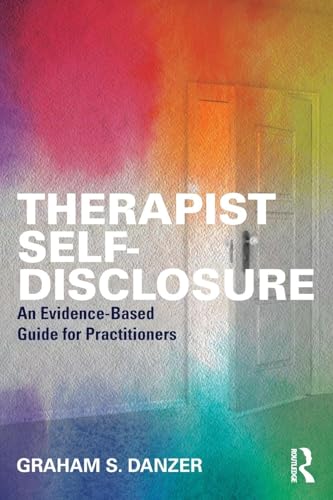Therapist Self-Disclosure
An Evidence-Based Guide for Practitioners
Graham S. Danzer
BOOK REVIEW

In a world where the lines between patient and practitioner grow increasingly blurred, Therapist Self-Disclosure: An Evidence-Based Guide for Practitioners by Graham S. Danzer emerges as a beacon of insight. This enlightening work challenges the age-old dogma of maintaining a rigid therapist facade, boldly arguing that self-disclosure can transform therapeutic relationships into vessels of trust and healing. Have you ever considered how vulnerability from a therapist could shift the dynamics of your healing journey? This groundbreaking book puts this question right on the table, forcing many to reevaluate their understanding of the therapist's role.
Danzer meticulously dives into the science behind self-disclosure, presenting a wealth of research to back up his claims. He crafts an argument that's not merely compelling but essential in today's therapeutic landscape, where connection and relatability often dictate the success of sessions. Each chapter is laden with evidence that reveals the profound impact of practitioners sharing their own experiences-fostering empathy, building rapport, and dissolving the often-imposing barriers that exist between provider and client. 📈
Critics argue whether disclosing personal information compromises professionalism. They voice concerns that it shifts the session's focus from the client's needs to the therapist's narrative. However, Danzer counters with examples that exhibit the positive outcomes of carefully curated self-disclosure. His take? That when used judiciously, sharing a personal anecdote can resonate deeply with clients, leading to breakthroughs that could otherwise remain locked away in the shadows of silence. It raises the question: Are we not all human beings, navigating the maze of our experiences together? 🤔
The urgency of this discourse cannot be overstated. In an era where mental health awareness is at its peak, the therapy community must adapt to meet the needs of diverse populations. Society is shifting, seeking more authentic connections. Danzer's insights beckon you to explore how self-disclosure-when wielded like a scalpel rather than a sledgehammer-can catalyze healing. With numerous case studies peppered throughout, the book exemplifies how vulnerability can serve as a tool for therapeutic transformation.
Readers have reflected on their experiences with this text, revealing a wide spectrum of emotions. Some express a newfound courage to embrace their own therapeutic practices, while others remain skeptical, fearing the potential pitfalls of this approach. One reviewer articulated that Danzer's work "pushes the envelope" and sparks necessary discussions, but cautioned that it requires immense skill and intuition to employ effectively.
Outside the confines of therapy rooms, Danzer's message resonates with anyone seeking deeper connections in their personal lives. It holds a mirror to our society, questioning why we shy away from vulnerability. Can you think of the relationships in your life? How many barriers do you maintain, not just with your therapist but with friends and family? Could self-disclosure be the key to unlocking deeper authenticity? 🌍
This book does more than just offer evidence; it compels practitioners and readers alike to embark on a soul-searching expedition. It delves into the historical contexts that have shaped our perceptions of therapist roles, urging a progressive shift toward a more humanized approach. It's not just a manual; it's a call to arms for anyone involved in mental health, relationships, and personal growth.
In this whirlwind of insight and revelation, Danzer's work is not merely a guide-it's an invitation to reconsider the healing process. As you turn each page, you may find yourself transformed, questioning your own barriers and recalls to your experiences. Therapist Self-Disclosure: An Evidence-Based Guide for Practitioners doesn't just ask you to think about self-disclosure; it demands you to act and feel. Don't let this opportunity pass by to change the narrative around healing-both for yourself and those you connect with. After all, what lies at the heart of therapy is not mere technique but the profound human connection we all crave. 🌟
📖 Therapist Self-Disclosure: An Evidence-Based Guide for Practitioners
✍ by Graham S. Danzer
🧾 270 pages
2018
#therapist #self #disclosure #evidence #based #guide #practitioners #graham #danzer #GrahamSDanzer